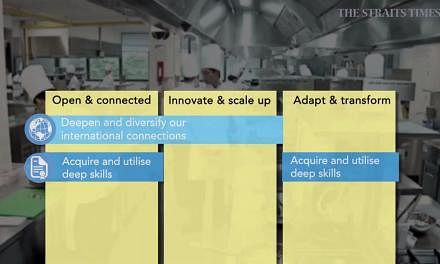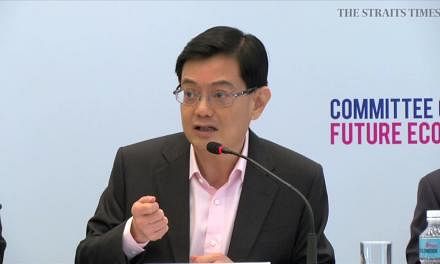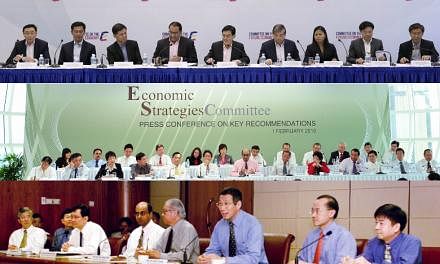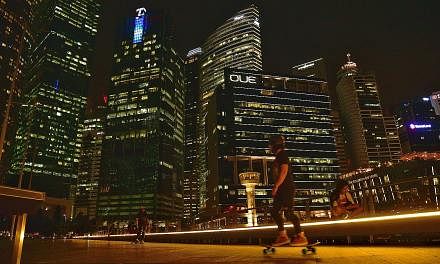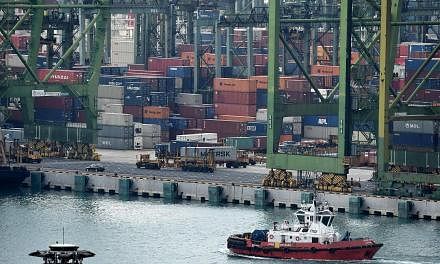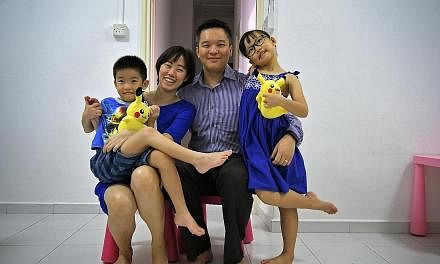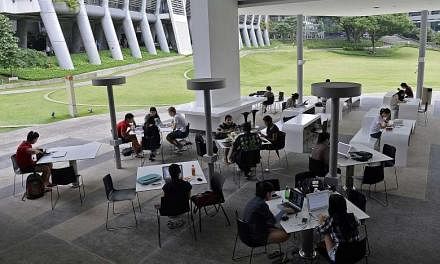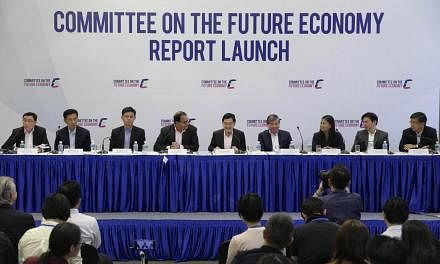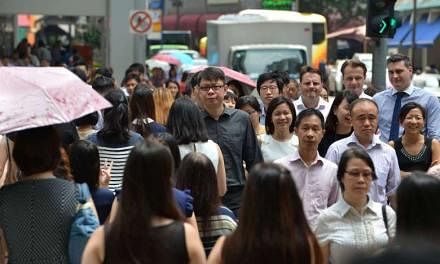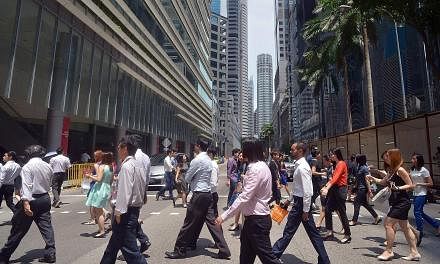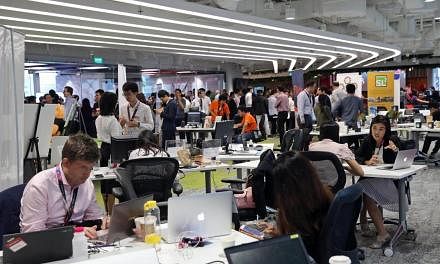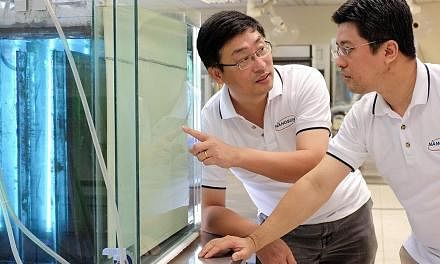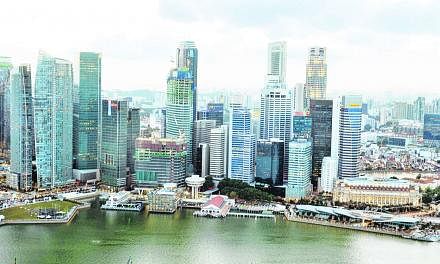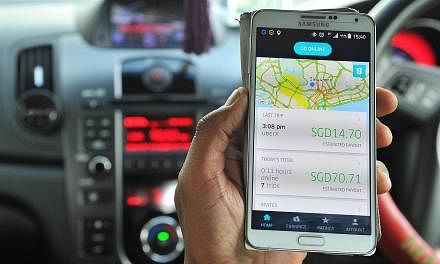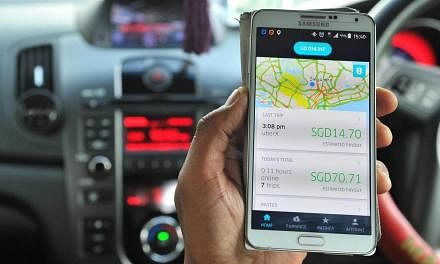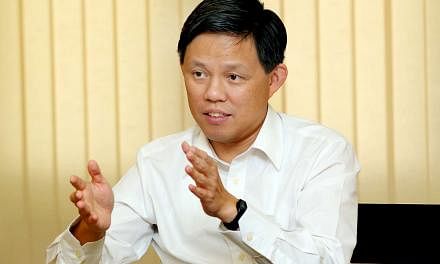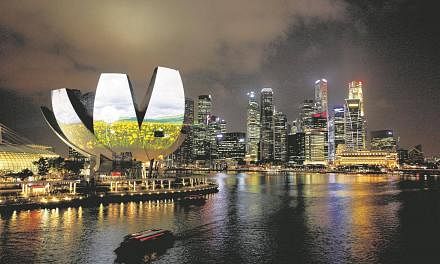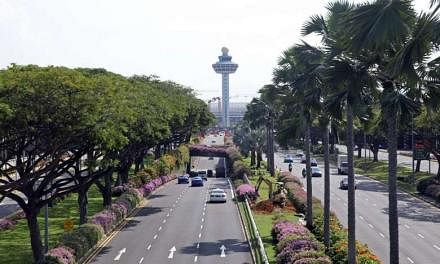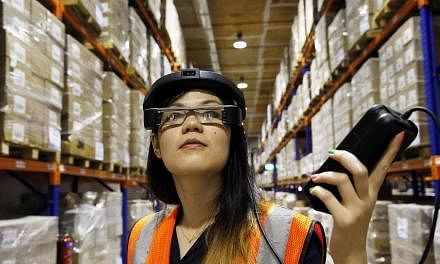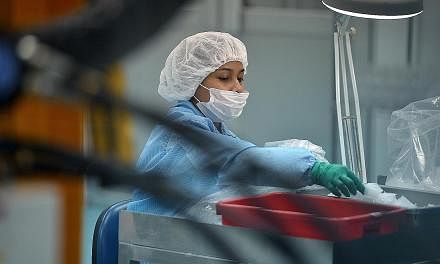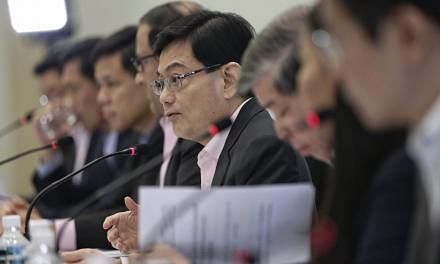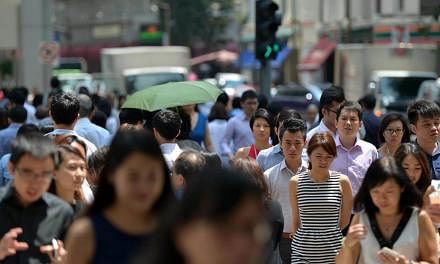That there was no striking, big idea or bold buzzwords on how to remake the economy when the Committee on the Future Economy (CFE) unveiled its report yesterday may leave some underwhelmed.
For those in this camp, the culmination of a year's work by the CFE should manifest itself in a silver bullet, or a string of them, to cope with the disruption caused by a volatile economy and technological change.
The one word that captured the imagination back in the Economic Strategies Committee report in 2010 was "productivity". Yet, many would now argue that productivity is but just one of the many ingredients for success. Earlier reviews had thrown up strategies like the "go regional" push, or called for major policy changes, such as refining the Central Provident Fund system to boost competitiveness and spur growth.
Instead, the report spelt out seven sensible, if hardly surprising, strategies which play on Singapore's strengths and seek to up its game in these areas.
Indeed, in an age of disruption, it was prudent of the CFE not to be swayed by the darker mood of nativist politics and protectionist economics elsewhere in the world into deviating from what Singapore is good at.
For those hoping for the mother of all solutions to be revealed yesterday, realistically, it is difficult to move the needle on the economic front for a developed economy like Singapore's. The likes of a "Big Bang", for instance, when London's financial markets were deregulated on a single day in 1986, transforming the financial centre, are impossible to contemplate today.
As Finance Minister and co-chairman of the CFE Heng Swee Keat noted, the target of 2 per cent to 3 per cent gross domestic product growth annually is a respectable number compared with advanced economies, for instance.
The CFE report sets out what needs to be done for the next decade.
No doubt, the seven strategies have been articulated before, in some shape and form. They are now brought together in a comprehensive, coherent report, while recognising that the backdrop is one of change and uncertainty.
These are not just broad-brush strategies, but are backed by projects already in the works. The notion of connectivity will be demonstrated through the upcoming Terminal 5 at Changi Airport and the next-generation seaport at Tuas, for instance. Then there are the wide-ranging Industry Transformation Maps which aim to transform various sectors.
However, the report gave little emphasis on strengthening a sector that was once a darling - tourism, noted accounting firm KPMG.
Going by current trends, it could have been tempting to give a nod towards anti-globalisation sentiment. What stands out is that the report, in its first of seven strategies no less, calls attention to Singapore's support for free and open markets. The strategy says that the call of protectionism should be robustly resisted, adding that Singapore should strive to work with like-minded partners to advance the liberalisation of trade and investments.
The report makes clear that Singapore's success lies not with that one magic bullet, but is about leveraging strengths.
NOT JUST THE PLAN, BUT THE RESPONSE AND EXECUTION
During yesterday's press conference, Minister in the Prime Minister's Office Chan Chun Sing referred to the importance of executing plans well, but spoke of how, in an uncertain world, it was also important to build capabilities to ensure a better response.
There is a realisation that the current environment of uncertainty means that a strategy of picking winners consistently has about as good a chance as winning Toto. In that vein, it makes sense to give workers the deep skills and companies the support that allows them to adapt quickly and easily to different circumstances.
Key to the success of these strategies will be the notion of collaboration - a theme Mr Heng has articulated on many occasions.
The strength of a small country working together and being nimble should not be underestimated. If trade associations and chambers, unions, companies and individuals can come together, in an environment of trust created by the Government, as Mr Heng believes they can, Singapore will be much more than the sum of its parts.
The committee's job is done. For Singaporeans, the work is only beginning.


